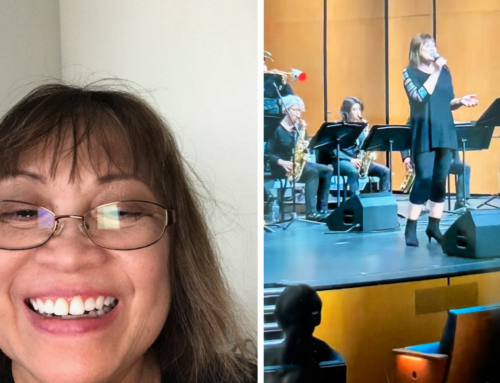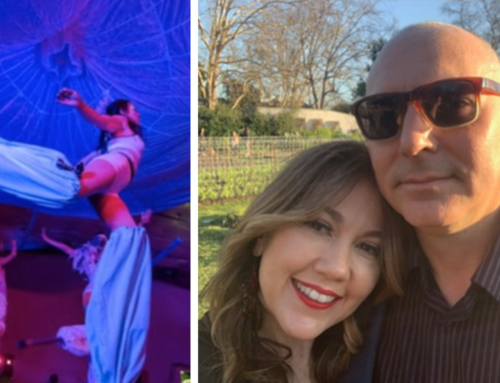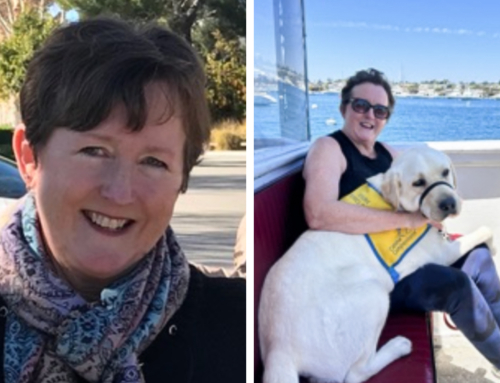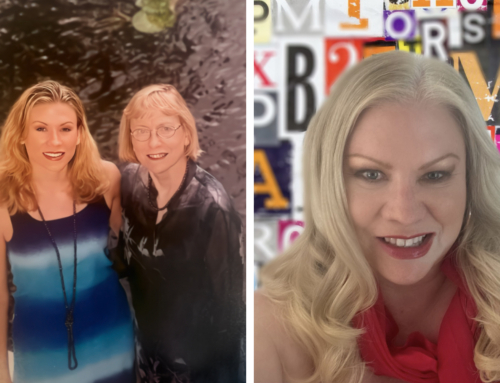“My Decision Score was a 9.2 out of 10, which is quite high. The test showed that my total risk (DCIS + invasive) of recurrence over the next 10 years was 42% without radiation and 15% with radiation. So, I am very happy that I am doing the right thing. And my doctor was impressed with the test and will be using it for other patients.”
Six years ago, Patti retired from a career as an office manager and moved to Florida with her husband of 52 years. The couple made friends and were enjoying their retirement in a 55+ community. Like many others, Patti missed her mammograms during Covid, but didn’t feel it would be a problem since she had no family history of breast cancer. When she went in for her annual check-up and regular mammogram in June, at age 70, the radiologist saw something suspicious and requested a digital mammogram, which also identified suspicious cells. In July, Patti had a biopsy and received a diagnosis of ductal carcinoma in situ (DCIS).
“The doctor explained that I had stage zero breast cancer – cancer cells that are contained within the milk ducts. My first response was ‘great I don’t need to do anything’. Not true. The doctor told me that the cancer cells could leave the milk ducts and become full blown breast cancer. He compared it to dropping a glass on the floor. You can clean it up really well but there is a chance that you’ll find a tiny bit of glass somewhere down the road. So, his recommended treatment was a lumpectomy followed by radiation so we could get every tiny piece.”
In late August Patti went in for her lumpectomy. Following surgery, she met with her radiation oncologist to discuss therapy and get the mould and tattoos. “I started radiation on September 22. I was given a choice of 20 days of radiation therapy over 4 weeks or 35 days over 7 weeks. I decided to do the stronger radiation dose over 20 days because I wanted to get it over with. It was surprising to me that I felt nothing during my radiation treatments, but I could tell something was happening inside. I’m a little tired, my breast is a bit sore, and my skin is dry. So, I have been creaming it like crazy!”
“I am HER2+ so my doctor also prescribed Anastrozole for me to take once a day for the next 5 years. He recommended that I begin taking them after I am done with radiation so we could know if any side effects were due to the radiation versus a new medication.”
“During my diagnosis, I learned about DCISionRT on a Facebook page. I asked my radiation oncologist about the test, and he was not familiar with it. So, I called PreludeDx directly and spoke with Dede, the patient advocate. She told me all about the test – DCISionRT uses a patient’s own tumor biology to determine the patient’s risk of recurrence following surgery with and without radiation. Dede even sent a representative with information to my doctor. He was agreeable to move forward with the test, so we sent my tissue sample to PreludeDx.”
“DCISionRT confirmed my decision to have radiation. My Decision Score was a 9.2 out of 10, which is quite high. The test showed that my total risk (DCIS + invasive) of recurrence over the next 10 years was 42% without radiation and 15% with radiation. My risk of invasive cancer over the next 10 years was 18% without radiation and 7% with radiation. So, I am very happy that I am doing the right thing. And my doctor was impressed with the test and will be using it for other patients.”
“When our friends and neighbors learned about my diagnosis, I couldn’t believe how kind everyone was. They brought food and flowers and balloons! It really helped lift my spirits. I think that having a positive attitude is important, especially where cancer is concerned.”
“My advice for other DCIS patients is to find the right doctors. If you are uncomfortable, get a second opinion and/or find another doctor. You need good medical people behind you that you trust. And, of course, keep your spirits up and gladly accept all those flowers and balloons!”






